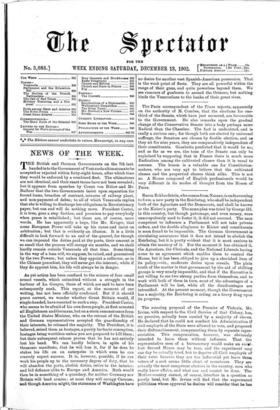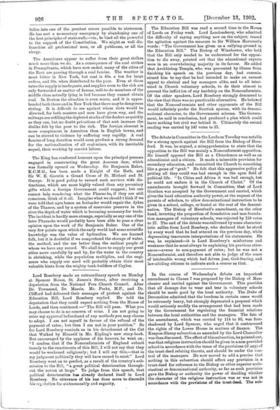The amazing proposal of the Premier of Victoria, Mr. Irvine,
with respect to the Civil Service of that Colony, has, we perceive, actually been carried by a majority of eleven. He declared that he could not conduct his Administration if civil employes of the State were allowed to vote, and proposed their disfranchisement, compensating them by separate repre- sentation. This compensation, however, was obviously intended to leave them without influence. That the representative men of a bureaucracy would make an excel- lent Second House may be true, and the experiment may one day be actually tried, but to deprive all Civil employes of their votes because they are too influential yet leave them voters of a sort seems little short of monstrous. They are actually the most competent electors in the country, men who really know affairs, and what can and cannot be done. The Mother-country cannot, of course, interfere in a question so purely local, but Mr. Irvine will find that the experienced politicians whose approval he desires will consider that he has
fallen into one of the greatest errors possible to statesmen. He has met a momentary emergency by abandoning one of the first principles of statecraft,—viz., to bind all the powerful to the support of the Constitution. We might as well dis- franchise all professional men, or all publicans, or all the clergy.



















































